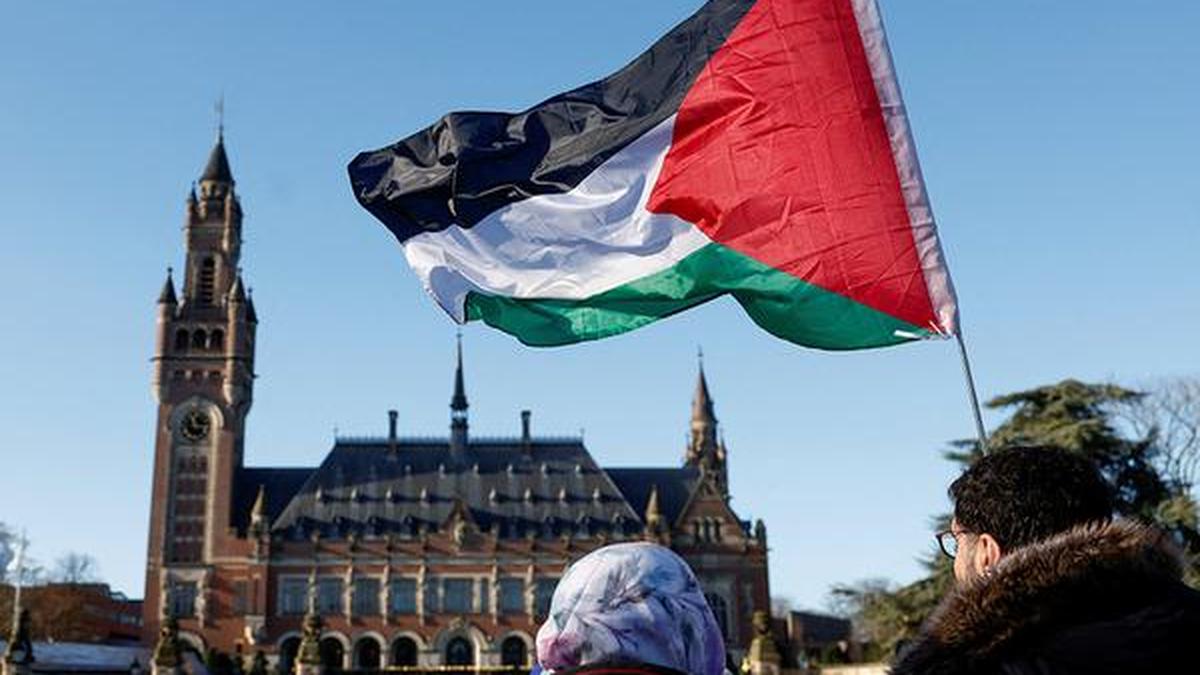
The ICJ’s ruling on Israel’s Rafah offensive and its implications | Explained Premium
The Hindu
ICJ orders Israel to halt military operations in Gaza, but enforcement remains a challenge amid escalating conflict.
The International Court of Justice (ICJ) on May 24 ordered Israel to halt its military operations in the southern Gaza city of Rafah in a ruling that can further the country’s international isolation and escalate demands for a ceasefire more than seven months into the war triggered by Hamas’ October 7 attack. This is the third time that the United Nation’s top court has issued preliminary orders to alleviate humanitarian suffering in Gaza.
However, in the absence of direct enforcement mechanisms, the Court’s decisions are often defied despite being legally binding. A day after the ruling, Israeli air strikes ravaged Rafah — a clear indication that the country was unwilling to change its course.
Friday’s ruling was delivered in a case instituted by South Africa accusing Israel of genocide and citing “immense risk” to the Palestinian population. Its latest request pointed out that the Hague-based Court’s January 26 provisional measures were not sufficient to address “a brutal military attack on the sole remaining refuge for the people of Gaza.” In another significant intervention in the conflict, the Prosecutor of the International Criminal Court (ICC) on May 20 announced his decision to apply for arrest warrants against Israeli Prime Minister Benjamin Netanyahu, Israeli Defence Minister Yoav Gallant, and three Hamas leaders, including Yahya Sinwar, the leader of the outfit for the alleged commission of war crimes and crimes against humanity.
Similar to interim injunctions issued by national courts, provisional measures issued by the ICJ seek to freeze combat operations to preserve the integrity of a future final judgment. Before the passage of such an interim order, the Court must be satisfied that it has prima facie jurisdiction, that there is a “plausible” link between the rights asserted by South Africa and the measures it requests and a risk of irreparable harm and urgency.
As per Article 76 of the Rules of Court (1978), the Court has the power to “revoke or modify” any decision concerning provisional measures if it finds that “some change in the situation” has taken place. In a ruling supported by a majority of 13-2 judges, the ICJ said that the humanitarian situation in Rafah is now “disastrous” — meaning the Court’s previously issued provisional measures were insufficient.
It thus acknowledged that the “repeated large-scale displacement of the already extremely vulnerable Palestinian population” constitutes “a change in the situation” within the meaning of the Court’s rules.
The ICJ relied upon a host of UN reports to underscore the “immense risks” associated with Israel’s continuous military strikes in Rafah. For instance, it noted that on May 6, the United Nations Children’s Fund (UNICEF) had indicated that half of the approximately 1.2 million Palestinians sheltering in Rafah were children and that Israel’s hostilities could result in the destruction of “the few remaining basic services and infrastructure”. It was further pointed out that the Al-Najjar Hospital, one of the last remaining medical facilities in the Rafah Governorate, was no longer functional and that the World Food Programme (WFP) had been unable to access its warehouse in the region leading to a disastrous hunger crisis.











